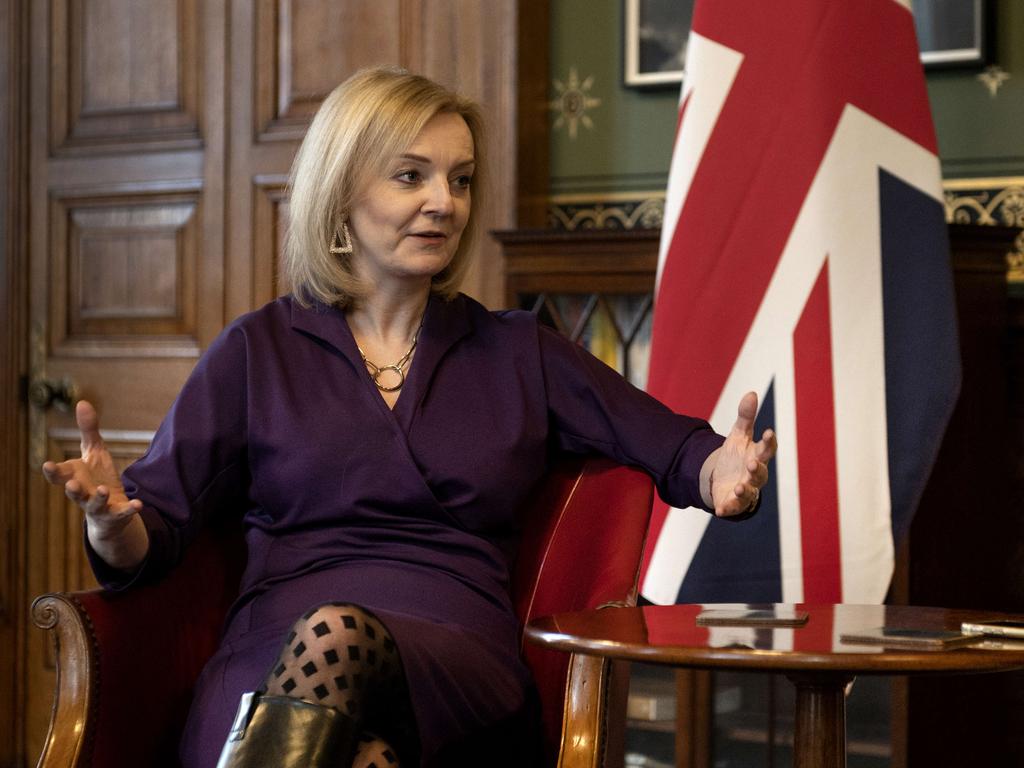British tax to put Australian vintners in the red
Australia lobbys UK to reconsider changes to alcohol taxes local winemakers say will harm exports.

Australia has begun quietly lobbying the British government to reconsider proposed changes to alcohol taxes that local winemakers say will wipe out the benefit of the free-trade agreement and significantly harm exports to their biggest market.
Trade Minister Dan Tehan told The Australian he had, in late December, written to British Chancellor Rishi Sunak “to register the industry’s concerns”.
The government is wary of being seen to involve itself in the domestic tax arrangements of another country, however, although it will through its agencies make submissions as part of a consultation process for the new alcohol duties. Instead, it will try to highlight the difficulties British authorities will have in implementing the proposed changes and the impact on Australian producers who – because of the warmer climate – produce wines that are higher in alcohol on average than from other markets, sources briefed on the discussions said.
Australian winemakers are warning that the overhaul of alcohol duties, increasing the tax paid on drinks with an alcohol content higher than 11.5 per cent, will add $160m to the cost of their products and drive consumers to their competitors.

That would “wipe out” the $43m reduction in import costs from the FTA, the country’s largest producer, Treasury Wine Estates, said last week.
There are 700 local producers who export to Britain.
“I am aware of the Australian wine industry’s concerns about the UK’s proposed reforms to alcohol duty,” Mr Tehan said. “Australia produces the best wine in the world and our wine is very popular with UK consumers.
“I want more people in the UK enjoying our high-quality wine when the agreement enters into force,” he added.
The change also faces opposition from British retailers and industry groups, who say it would increase the price of 93 per cent of wine imported from Australia.
Local wine, in particular red varieties, have higher levels of alcohol largely due to environmental conditions.
Imports to Britain have become increasingly important for Australian producers after China – previously the largest market by a considerable distance – attached significant tariffs to the industry as trade relations with Beijing deteriorated.
The most recent Wine Australia statistics, for the 12 months to September 30, show Britain is the single largest export destination for Australian wines – with sales rising 7 per cent in that period to $460m. That compares to a fall of 77 per cent in wine exports to China – to $274m – as trade restrictions scaled back demand.
Under the FTA, tariffs on wine will be cut by 20p (37c) a bottle, but the winemaking industry says the new duties will increase prices by between 40p and 68p a bottle.
Tony Battaglene, chief executive of industry lobby group Australian Grape and Wine, said the proposed tax was “a serious situation for us, and a major concern”.
“We have spoken to Mr Tehan but we haven’t heard of any response (from Mr Sunak),” Mr Battaglene said.
“We understand it is a sovereign right of any country to put taxes on in the form they want, but we do think the policy principles they are trying to reach – efficiency in tax collection – won’t be met with this proposal.”
On Thursday, Treasury Wine Estates, the company that produces the Penfolds, Wolf Blass and Lindeman’s brands, told The Australian that the duty would “diminish future growth prospects in the largest export market for Australian wine growers”.
“As one of the world’s leading premium winemakers, Treasury is disappointed that our business and other Australian wine brands won’t be able to benefit from the (FTA),” a company spokeswoman told The Australian last week.
In an interview, British Foreign Secretary Liz Truss indicated it was unlikely the government would reconsider the proposal, despite pressure from Australian groups. “One of the reasons that the UK left the (EU) is that we didn’t have sovereignty over decisions on things like taxes,” Ms Truss said. “The changes that we have had to make in alcohol duty are to make it a much more logical system,” she said last week.
Polling conducted by CT Group for the Adam Smith Institute in London last year found that Australian wine was the most popular selection among people in Britain when asked what product they would buy if it were stocked more frequently.
Some 57 per cent of those surveyed said they would buy more Australian wine, compared with 52 per cent who said they would buy more beef, and 50 per cent who would buy lamb.
The British government is consulting with the industry and health experts on the new tax.
In a paper released in October, winemakers told the government they were “worried that this would interfere with business decision-making, as for practical and regulatory reasons winemakers were limited in their ability to regulate the alcohol content of their products”.
One submission read: “The final alcohol content of wine is largely dictated by grape sugar content, which is dependent on the hours of sun received when growing and cannot be controlled exactly. “This makes it impossible for wine makers to hit a consistent (alcohol level).”





To join the conversation, please log in. Don't have an account? Register
Join the conversation, you are commenting as Logout